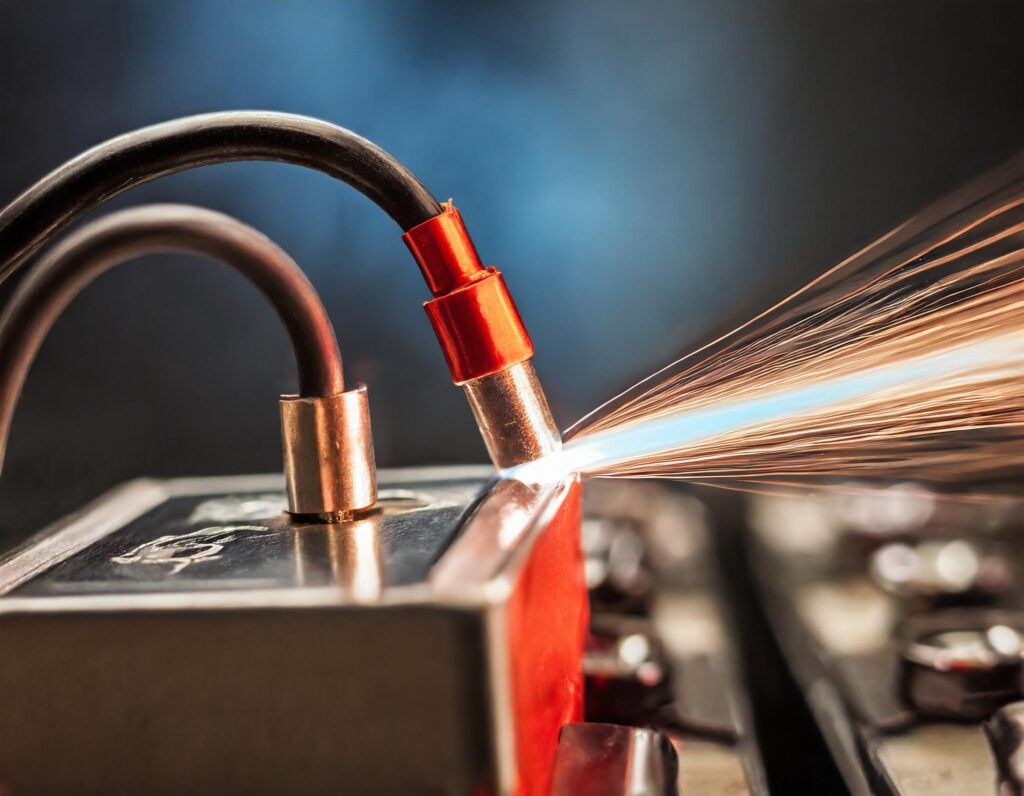In an time of rapid technological advancement, lithium batteries have become the power source of choice for a wide array of devices, from smartphones to electric vehicles. The increased prevalence of these powerful energy storage systems brings new challenges, particularly in terms of safety. NFPA 70E training for lithium battery safety, plays a crucial role in ensuring that employees are adequately prepared to handle these systems safely.
NFPA Electrical and Battery Safety Event
Join us on September 12th for a live in-person training event at ZF Transmissions in Gray Court, SC. The day will begin with instructor-led NFPA 70E training. After lunch we will host an informal panel discussion followed by a live burn demonstration.
Schedule for the Day
- 9am-12pm: NFPA 70E Arc Flash Training
- 12pm-1pm: Lunch with the Panelists
- 1pm-2pm: Panel Discussion
- 2pm-3pm: Live Burn and Fire Blanket Demonstration
Meet the Panelists
Understanding NFPA 70E
The National Fire Protection Association (NFPA) 70E standard is a comprehensive guide designed to reduce the risk of electrical hazards in the workplace. Originally developed to address the dangers associated with electrical systems and equipment, the standard has evolved to encompass the latest technological advancements, including those related to lithium batteries.
NFPA 70E training covers essential topics such as hazard identification, risk assessment, personal protective equipment (PPE), and safe work practices. It equips workers with the knowledge and skills necessary to prevent electrical incidents, which can lead to severe injuries or fatalities.
Why Lithium Battery Safety Matters
Lithium batteries, while efficient and long-lasting, are not without risks. These batteries store significant amounts of energy in a compact space, and under certain conditions, they can overheat, catch fire, or even explode. Incidents involving lithium batteries have occurred in various settings, from consumer electronics to large-scale industrial applications.
The risks associated with lithium batteries stem from several factors:
- Thermal Runaway: A chain reaction that occurs when a battery cell overheats, leading to the release of energy and potential combustion.
- Short Circuits: Faulty wiring or physical damage to the battery can cause a short circuit, resulting in heat buildup and potential fires.
- Mechanical Damage: Dropping, puncturing, or otherwise damaging a lithium battery can compromise its integrity, leading to safety hazards.
Given these risks, it is imperative that those working with or around lithium batteries are trained to recognize potential hazards and take appropriate safety measures.
How NFPA 70E Training Enhances Lithium Battery Safety
- Hazard Identification and Risk Assessment:
- NFPA 70E training emphasizes the importance of identifying and assessing risks before starting any work involving electrical systems, including lithium batteries. Workers learn how to evaluate the potential for electrical hazards and implement controls to mitigate these risks.
- Personal Protective Equipment (PPE):
- Proper PPE is essential when handling lithium batteries, especially in environments where there is a risk of electrical exposure. NFPA 70E training ensures that workers understand the importance of using the correct PPE, such as insulated gloves, face shields, and flame-resistant clothing, to protect themselves from potential electrical and chemical hazards.
- Safe Work Practices:
- The training provides guidelines for safe work practices when dealing with electrical systems, including lithium batteries. Workers are taught how to safely disconnect and handle batteries, conduct maintenance, and respond to emergency situations such as fires or explosions.
- Emergency Response:
- In the event of an incident involving lithium batteries, a prompt and effective response is critical to minimizing harm. NFPA 70E training includes instruction on emergency procedures, such as how to safely extinguish a lithium battery fire and provide first aid to affected individuals.
- Ongoing Education and Awareness:
- Technology is constantly evolving, and so are the risks associated with new battery technologies. NFPA 70E training encourages a culture of continuous learning and awareness, ensuring that workers stay up-to-date on the latest safety practices and regulatory changes.
Conclusion
The importance of proper safety training cannot be overstated. NFPA 70E training provides workers with the knowledge and skills necessary to safely handle these powerful energy storage systems. By prioritizing NFPA 70E training, employers can protect their workforce, safeguard their operations, and contribute to the responsible use of lithium battery technology.





